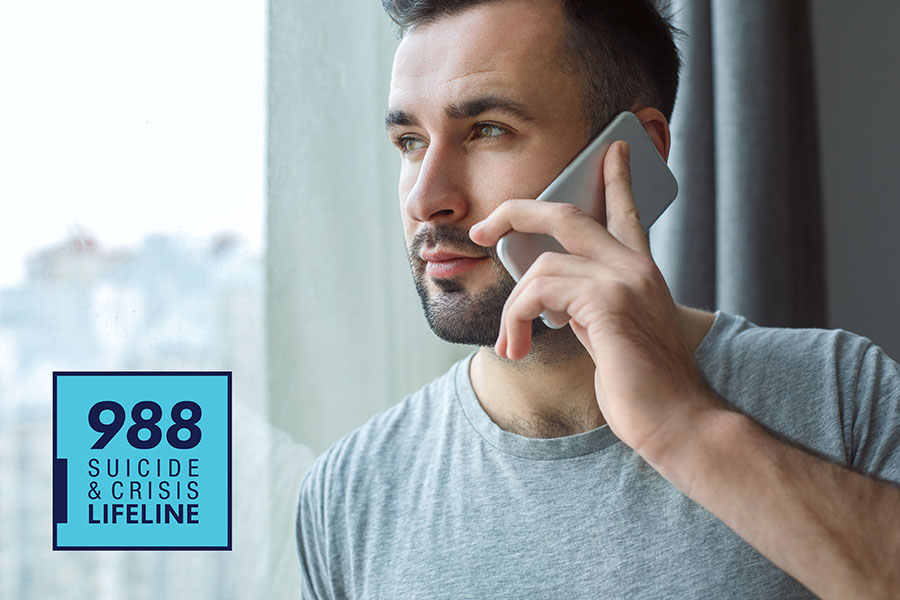
You're Never Alone
About the 988 Hotline: The 988 hotline is a dedicated emergency helpline designed to offer immediate assistance to individuals experiencing emotional distress or suicidal thoughts. Launched as a response to the growing mental health crisis, this hotline serves as a direct line to trained professionals who can provide support, resources, and immediate help.
How It Works: When someone dials 988, they're promptly connected to a local crisis center from a national network, ensuring they receive appropriate care and resources based on their location and individual needs.
Signs and Symptoms of Mental Health Issues
- Mood Changes: Frequent and unexplained shifts in mood, prolonged feelings of sadness, or manic behavior.
- Withdrawal: Decreased interest in social activities, hobbies, or interactions that once brought joy.
- Changes in Sleep: Insomnia, frequent waking in the night, or sleeping more than usual.
- Decreased Energy: Persistent feelings of fatigue or lack of motivation to complete daily tasks.
- Changes in Appetite: Significant weight gain or loss, or changes in eating habits.
- Feelings of Hopelessness: Persistent thoughts that life isn’t worth living, or a sense that things will never improve.
- Physical Symptoms: Unexplained aches and pains, headaches, or digestive problems.
- Anxiety: Persistent feelings of worry, restlessness, or being overwhelmed.
Importance of Seeking Help
- Early Intervention: Recognizing and addressing mental health issues early can lead to better outcomes and prevent problems from escalating.
- Professional Guidance: Therapists, counselors, and psychiatrists have the training to help individuals navigate complex emotional and mental challenges.
- Support System: Building a network of support, whether it's through therapy, support groups, or helplines, can make a significant difference in recovery and ongoing mental health management.
Seeking Help
- Seeking Help is Strength: Admitting you need assistance and seeking out resources is not a sign of weakness. On the contrary, it takes courage to acknowledge challenges and take proactive steps toward well-being.
- You’re Not Alone: Millions of people experience mental health issues, and there's a vast community of individuals, both professionals and peers, ready to support you.
- Immediate Assistance: If you or someone you know is in distress or facing a crisis, the 988 hotline and other resources are available 24/7 to provide immediate assistance. Every moment matters, and help is just a call away.


